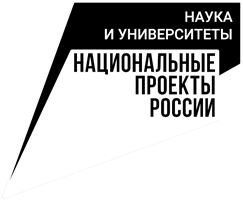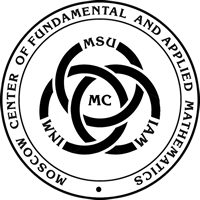PROGRAM
11:00 (GMT+3)
| Alexander Gaifullin | Steklov Mathematical Institute & Skolkovo Institute of Science and Technology, Russia |
|
Bio: Prof. Alexander Gaifullin is the Correspondent member of the Russian Academy of Sciences (since 2016). He got the following honours: Prize of the President of the Russian Federation in the field os science and innovations for young scientists (2016), Prize of the Moscow Mathematical Society (2012). He is the invited speaker at the 5th European Congress of Mathematics (Krakow, 2012); plenary speaker at the 6th European Congress of Mathematics (Berlin, 2016). |
|
On homology of Torelli groups.
The mapping class groups of oriented surfaces are important examples of groups whose properties are closely related to geometry and topology of moduli spaces, topology of 3-manifolds, automorphisms of free groups. The mapping class group of a closed oriented surface contains two important subgroups, the Torelli group, which consists of all mapping classes that act trivially on the homology of the surface, and the Johnson kernel, which is the subgroup generated by all Dehn twists about separating curves. The talk will be devoted to results on homology of these two subgroups. Namely, we will show that the k-dimensional homology group of the genus g Torelli group is not finitely generated, provided that k is in range from 2g-3 and 3g-5 (the case 3g-5 was previously known by a result of Bestvina, Bux, and Margalit), and the (2g-3)-dimensional homology group the genus g Johnson kernel is also not finitely generated. The proof is based on a detailed study of the spectral sequences associated with the actions of these groups on the complex of cycles constructed by Bestvina, Bux, and Margalit.
12:00 (GMT+3)
| Guozhen Wang | professor, Shanghai Center for Mathematical Sciences, Fudan University, China |
|
Bio: Guozhen Wang received PhD degree from MIT in 2015. From 2016, he is working at Shanghai Center for Mathematical Sciences, Fudan University. His research field is algebraic topology, including stable and unstable homotopy groups, applications of computers in homotopy theory, motivic homotopy theory and topological cyclic homology. |
|
Stable homotopy groups of spheres
We will discuss the current state of knowledge of stable homotopy groups of spheres. We describe a computational method using motivic homotopy theory, viewed as a deformation of classical homotopy theory. This yields a streamlined computation of the first 61 stable homotopy groups and gives information about the stable homotopy groups in dimensions 62 through 90. As an application, we determine the groups of homotopy spheres that classify smooth structures on spheres through dimension 90, except for dimension 4. The method relies more heavily on machine computations than previous methods and is therefore less prone to error. The main mathematical tool is the Adams spectral sequence.
Заседание семинара пройдет в форме вебинара на платформе Zoom.
Pre-registration for the event is not required.
To join Zoom meeting(You can join in the meeting without a phone number):
https://zoom.com.cn/j/66881753105?pwd=cExPcGh3YmMvaUt6UmdzamJZa1gyUT09
Meeting ID : 668 8175 3105
Пароль:348558
Instructions for installing and using the Zoom platform are available here:
https://support.zoom.us/hc/ru/articles/201362033-Начало-работы-на-ПК-и-Mac

